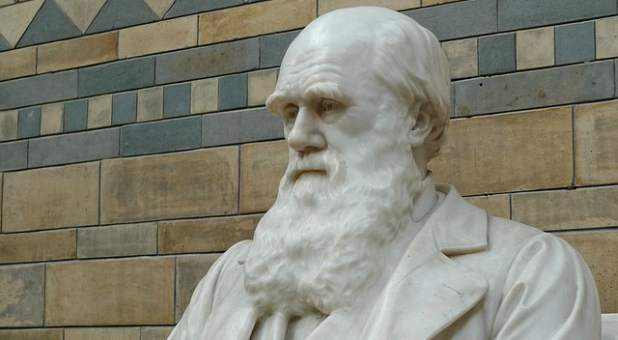Have you ever tried sharing the gospel with someone—only to be stymied by their objections to the book of Genesis? Don’t lose heart; there’s good news for evangelism-minded believers. Though Darwin’s ideas still reverberate through our culture, the progress of science has identified fresh challenges to Darwin’s theses. And these challenges are straightforward enough that anyone can understand them.
Analogies are the key. Let’s say we’re discussing a different historical question—the assassination of President John F. Kennedy. The Warren Commission concluded in 1964 that JFK died because of a single shooter, Lee Harvey Oswald. How might I challenge the evidence for this claim? If I told you that, in retrospect, we now know that this 50-year-old study had access to only 15 percent of its subject matter, you might reconsider the 1964 claims. Let’s say that they were unaware of 85 percent of the suspects we recognize today. Should we still trust their conclusions?
Please don’t misunderstand. I’m not advocating for a conspiracy theory. I’m testing you to see what it would take to change your view of an established narrative.
The parallels between JFK and Darwin might not be obvious at first glance. So let’s dig a little deeper. Darwin’s question was not one of killers or of political intrigue. Darwin wanted to understand biology. Specifically, Darwin wanted to find the answer to the question of the origin of species. Though professional biologists still debate the precise definition of the term, the concept is intuitively obvious. Even children know the difference between camels and giraffes, between horses and cows, and between moose and tigers. Each of these six animals represents a species. Darwin claimed to have discovered the key clues to how they arose.
How could anyone challenge his conclusions? The same way I just challenged the narrative on JFK. With respect to Oswald, I invented the percentages of suspects, for purposes of illustration. With respect to Darwin, we know with confidence what Darwin knew and what he didn’t. While we don’t have access to his inner thoughts, we know precisely the state of scientific knowledge in the late 1800s. In short, in 1859, the scientific community knew of only 15 percent of the species that we know today. In other words, Darwin wrote a thesis on a topic where 85 percent of the subject matter was unknown. If Darwin was aware of so few of his subjects, how could he hope to access the evidence on their origins?
A second analogy reveals another fatal handicap for Darwinian evolution. Let’s say you and I have a strong interest in medicine. We both want to cure diseases and improve human health. Let’s further say that we live in an era when no one has yet examined a cadaver. Could we intelligently discuss the human muscular system? The nervous system? The digestive system? Would we have any hope of understanding why cancer occurs and why it can cause death?
When Darwin tried to penetrate the question of species, he tried to answer a fundamentally genetic question. Let’s dig deeper again to see why this is true. Today, we recognize species by their traits—tigers by their stripes, giraffes by their necks, camels by their humps. But these traits are passed on to each subsequent generation. In other words, species are defined by traits, but traits are defined by inheritance. If you want to know the origin of species, you need to know the origin of the traits that define them. To know the origin of traits, you must know the rules of inheritance that define these traits.
In 1859, the scientific community knew virtually nothing about inheritance. DNA was not recognized as the substance of heredity until 1953—nearly 100 years after Darwin wrote the Origin. The DNA code for various species was not cracked until very recently. Darwin tried to answer a question long before its time.
The next time you share the gospel with someone who brings up Darwin, ask them two questions. Ask the person if they know that Darwin had access to only 15 percent of the species we recognize today. Then ask them why Darwin would write a book on a genetic topic long before anyone had access to genetic data. I think your listener will have to stop and reconsider his views. If they’re willing to dig deeper, apologetics resources abound. {eoa}
Nathaniel Jeanson has a Ph.D. in biology from Harvard University and is the author of Replacing Darwin: The New ‘Origin of Species.’
See an error in this article?
To contact us or to submit an article























